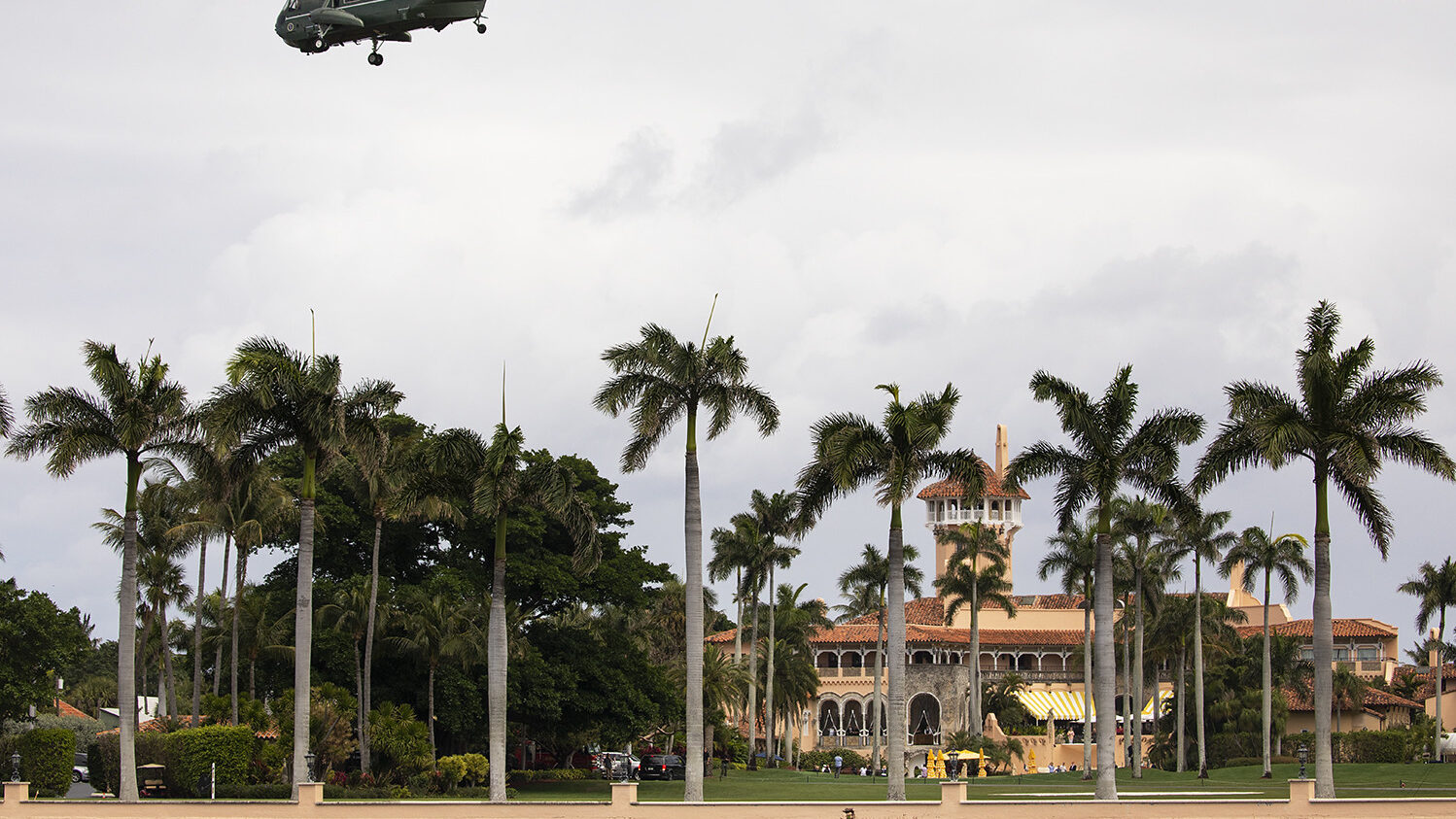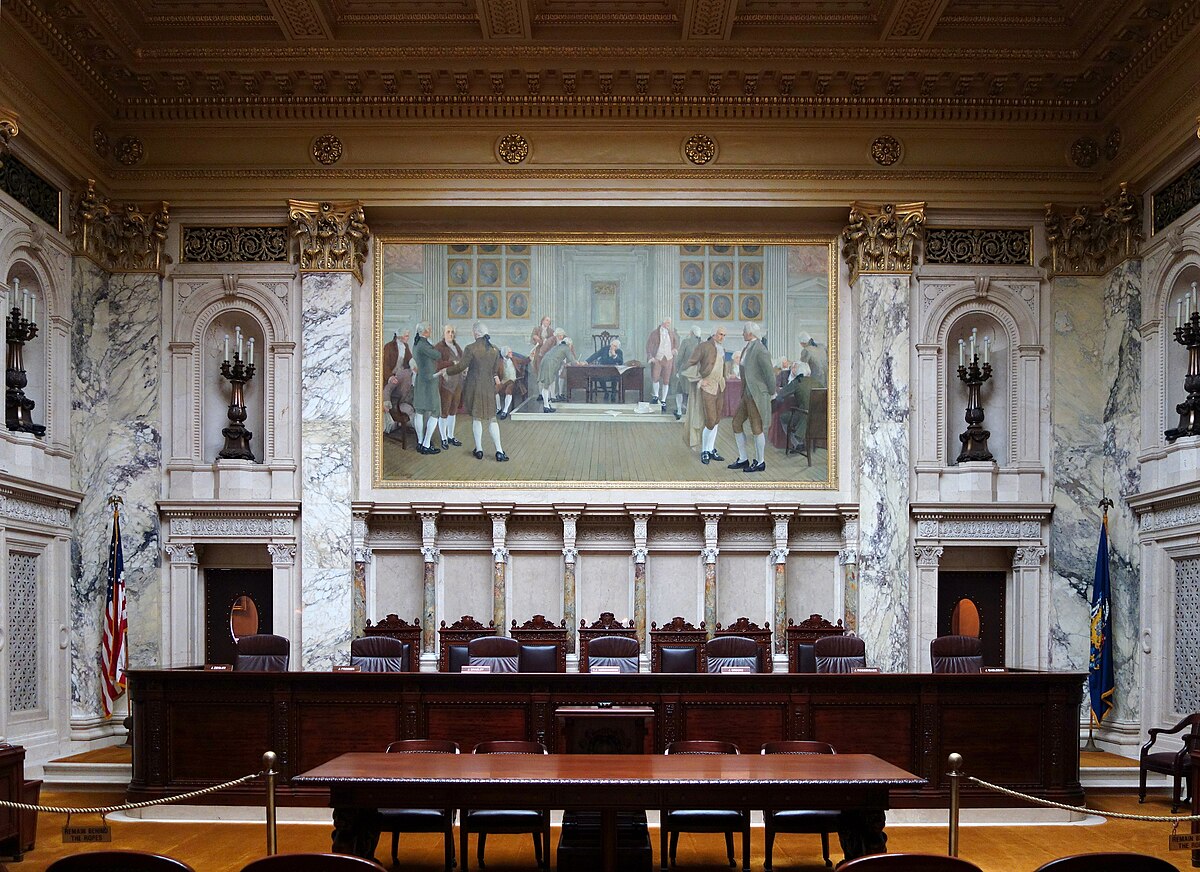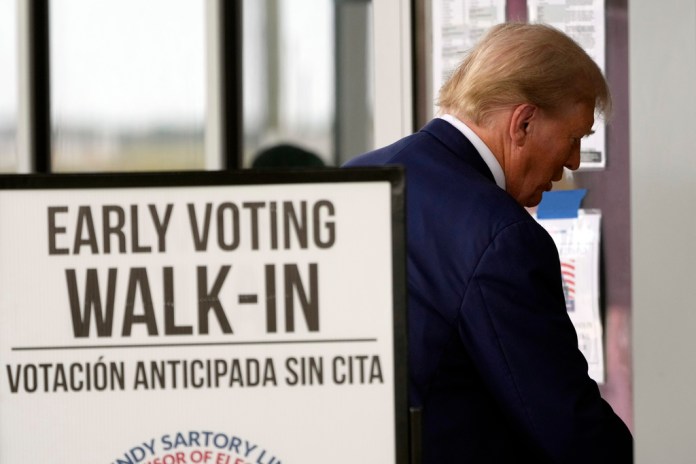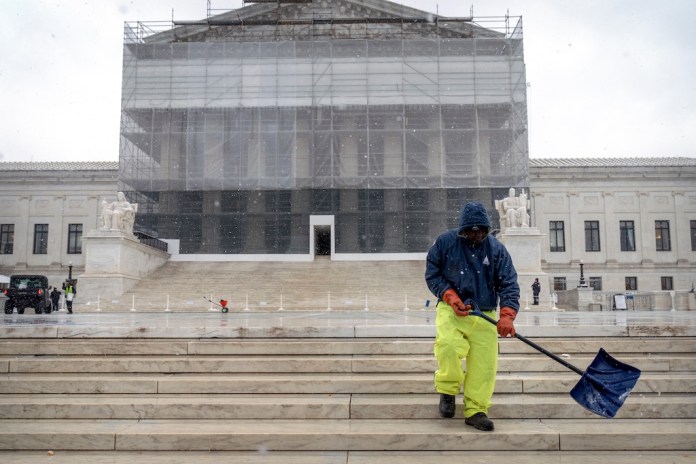Nebraska Supreme Court rules felons can vote after sentence completion – Washington Examiner
The Nebraska Supreme Court recently ruled that felons who have completed their sentences can register to vote immediately, a significant decision that may enable thousands to participate in the upcoming 2024 election. This ruling did not explicitly address the constitutionality of existing state laws that disenfranchise felons, but the court determined that the challenges against these laws were insufficient to prevent eligible voters from registering close to the election date.
The decision was supported by the American Civil Liberties Union (ACLU), which hailed it as a victory for voting rights. ACLU attorney Jonathan Topaz expressed gratitude for invalidating attempts to impose permanent disenfranchisement on felons. While Nebraska is a predominantly Republican state and the ruling is not expected to dramatically alter election outcomes, the state’s unique electoral vote allocation might still make it competitive for some candidates.
This ruling aligns with broader national discussions about felon voting rights, highlighting the varying laws across states regarding the ability of individuals with felony convictions to participate in elections. Nearly every state enacts some form of voting restrictions for those with felony records, a practice often criticized as a remnant of past discriminatory laws.
Nebraska Supreme Court rules felons can vote after sentence completion
The Nebraska Supreme Court ordered the secretary of state on Wednesday to begin allowing felons who have completed their sentences to register to vote immediately, a decision that activists say could result in thousands more participating in the 2024 election.
Nebraska’s highest court, which has a Republican majority, did not directly rule on the challenges state officials raised about the constitutionality of two state laws that let felons with completed sentences vote. However, the state Supreme Court decided that the challenges were not strong enough to disenfranchise felons, including the two who brought the case, so close to the election.
“Given that the registration deadlines for voting in the 2024 general election are fast approaching, [the two plaintiffs] have also shown they have no other plain and adequate remedy available in the ordinary course of the law,” the justices wrote.
The pair of plaintiffs were supported by the American Civil Liberties Union, which celebrated the decision in a statement.
“We are grateful the Nebraska Supreme Court invalidated this lawless attempt to reinstate permanent felony disenfranchisement and are thrilled for the thousands of eligible Nebraska voters who will be able to cast ballots in November and beyond,” ACLU attorney Jonathan Topaz said.
Nebraska is a solid red state, meaning the decision is not expected to sway the outcome of the presidential race, although the state is one of only two that splits its electoral votes, and Democratic candidates are sometimes competitive for the single electoral vote from Nebraska’s 2nd Congressional District.
Nearly every state has some form of restrictions on people voting after being convicted of a felony. The ACLU, which calls such restrictions a “relic of Jim Crow,” found that about two dozen states also have a variety of limitations on felons voting once they have completed their sentences.
The legal fight in Nebraska came after its secretary of state, Bob Evnen, announced over the summer that he would halt voter registration for those with felony convictions who have finished their jail time, citing a new opinion published by Nebraska Attorney General Mike Hilgers.
The two state officials, both elected Republicans, said the two state laws in question, including one passed this year that allowed felons to register to vote as soon as they left jail, were unconstitutional. They said the Board of Pardons should have sole control over restoring rights to those who lost them as a result of their criminal convictions.
Evnen said in August, however, that he would abide by whatever the Nebraska Supreme Court decided in the case.
“We will follow whatever direction the court gives us regarding felon registrations,” Evnen said.
" Conservative News Daily does not always share or support the views and opinions expressed here; they are just those of the writer."




